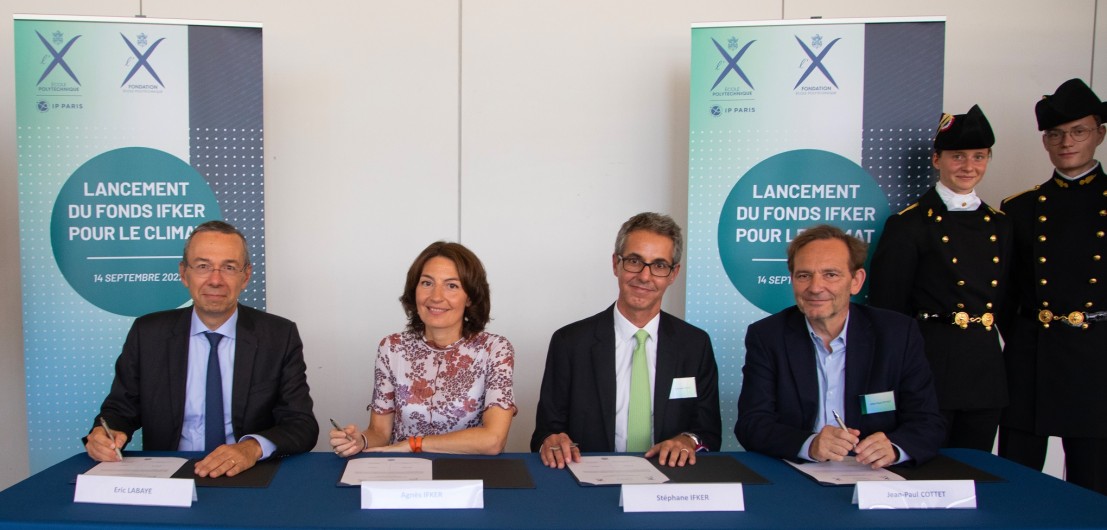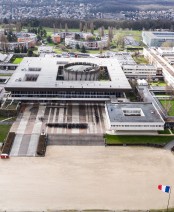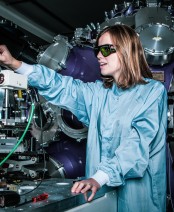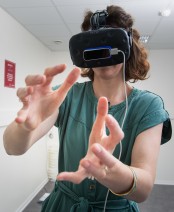An exceptional donation to accelerate research on the energy transition at Polytechnique

The launch of the Ifker Climate Fund at École Polytechnique on September 14, 2022 formalized the exceptional donation made by Stéphane (X 93) and Agnès Ifker to accelerate research in favor of the energy transition conducted within the interdisciplinary Energy4Climate (E4C) center.
"The exemplary donation by Agnès and Stéphane Ifker, the most significant donation for research received by the Foundation from individual donors, illustrates the key role that the Polytechnic community plays in the future of École Polytechnique, and more broadly in solving the major challenges of our time," said Frédéric Oudéa, President of the École Polytechnique Foundation, whose main mission is to contribute to the development and influence of X.
The €8 million grant will fund the project "Reducing CO2 emissions: between intelligent energy management and carbon sequestration" launched by E4C..
E4C, founded and directed by Philippe Drobinski, also head of the Dynamic Meteorology Laboratory*, involves 26 partner laboratories and over 200 researchers. The center is developing an ambitious global research program and offers a unique international training program on energy.
"Through our commitment, we want to give researchers the means to develop ambitious projects for the common good and help X to position itself as a world reference and a driving force in the energy transition," said Agnès and Stéphane Ifker, who are joining the "President's Circle", a group of Major Donors whose commitment exceeds three million euros.
The project supported by the Ifker Climate Fund will make it possible to create two new technological platforms: a first device for extracting and reclaiming CO2 from water installed on the École Polytechnique lake; a full-scale demonstrator for storing and optimizing thermal and electrical energy.
These new platforms will help make the École Polytechnique and Institut Polytechnique de Paris campuses a living laboratory for the energy transition.
"The exceptional donation that Agnès and Stéphane Ifker have just made, to whom I would like to extend my warmest thanks, will enable a major acceleration of the Energy4Climate interdisciplinary center by developing unique technological platforms, and a reinforcement of the place of l’X and IP Paris among the leaders in research around the energy transition," said Eric Labaye, President of École polytechnique and President of the Institut Polytechnique de Paris.
École Polytechnique has put sustainable development and the energy transition at the heart of its strategy by making strong commitments to the climate in June 2019 at the international conference "Reflections: Research, Training and Action for Sustainable Development", and aims to position itself as a benchmark on these topics.
After implementing its five commitments - training 100% of students in sustainable development, setting up a sustainable development training certification, creating the E4C center, launching an international student challenge, and carrying out its first carbon assessment - the École Polytechnique published its Climate Plan at the beginning of 2022 and affirmed its objective of making the campus carbon neutral by 2050.
*The École Polytechnique laboratory is co-supervised by the CNRS, ENS Paris and Sorbonne University.








